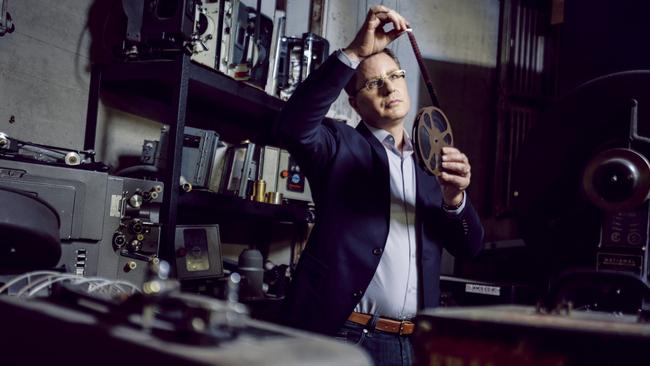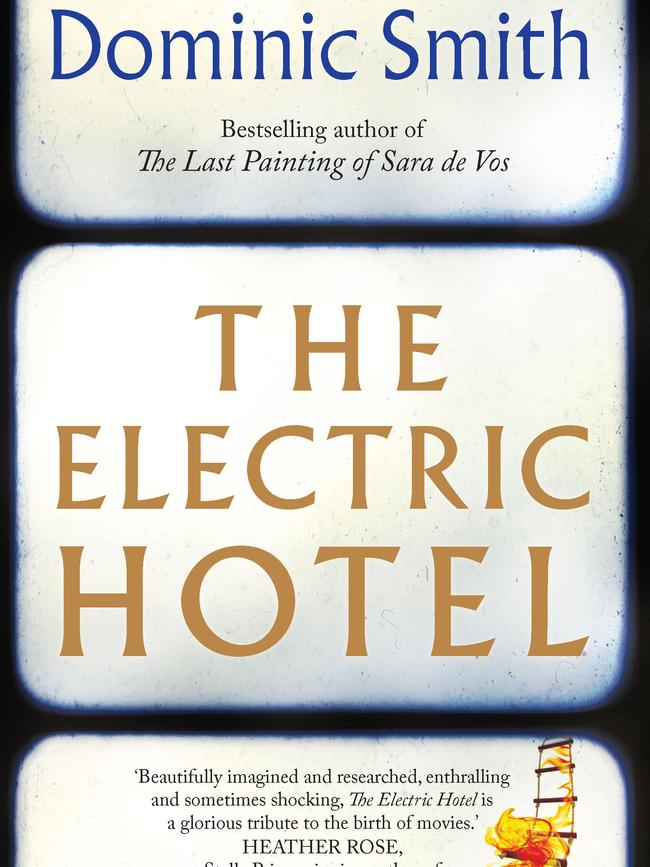Moving pictures
The arrival of cinema is something that, like the Great War, has slipped out of living memory, but only barely.

The arrival of cinema is something that, like the Great War, has slipped out of living memory but only barely. We can just make out its faint glow over the temporal horizon. Yet the shift it instituted in our sense of reality is scarcely possible to imagine. There was an endless pictorial before, when we recorded the world as a series of static images, and then the rush of after, that ‘‘silver quickening’’ when the noun of our visual depictions became a verb.
Dominic Smith’s fourth novel, The Electric Hotel,explores this transformation in perception. Yet it is imbued with a melancholy that seems odd in relation to such a startling technological leap. This is because early film has proved to be a less robust medium than the tempera and ink and oils that preceded it. It was unstable, easily combustible, prone to deterioration over time.
Celluloid nitrate, the stock used for much early cinema, essentially self-destructs, turning into nitric acid. A recent study by the US Library of Congress estimated that three quarters of all silent films have been lost.
Smith, a US-based Australian, takes the ache of nostalgia that comes with this knowledge and weaves a human story around it. He imagines the career of an early practitioner of the art form — a Frenchman named Claude Ballard — and traces his groundbreaking efforts, from promising beginnings to decades-long silence.

Ballard starts life as a wounded soul. He lost his mother as a child and then his sister as a young man to tuberculosis, though not before he was able to film her last moments for posterity and as a pendant to his private grief. He is a photographer’s assistant whose work involves taking pictures of asylum patients and other macabre medical subjects, and Ballard’s life suddenly changes when, in a Parisian hotel basement in 1895, he watches a presentation by the Lumiere brothers of their new invention: the cinematographe, a working camera, projector, and printer. For him it is a revelation almost religious in cast. Here is the ‘‘photographic trinity’’ that will inaugurate the age of film.
With his photographic training and what turns out to be an artist’s unblinking gaze, Ballard takes to the new device with alacrity, gaining employment with the brothers as a concession agent, showing ‘‘views’’ of Paris and London to audiences around the world, including in Australia, while recording new material during his travels.
In the years that follow, he wanders the globe, assembling a remarkable catalogue of material that he plays to audiences who are at first awed, then increasingly hungry for new, more extreme or sophisticated material.
The first glimpse of a new future for the medium comes when Ballard lands in New York to screen films in a converted vaudeville theatre in Union Square belonging to Hal Bender, an early cinema promoter. His raucous viewers disturb a theatrical performance of Shakespeare’s Hamlet next door, one in which the titular role is taken by a French actress named Sabine Montrose.
Annoyed by the distraction but intrigued by the new technology, that night Sabine invites the young Frenchman to her hotel suite for a private screening. Ballard is entranced by her and falls hopelessly in love after she invites him to bed in a momentary fit of passion. The following morning, at the direction of Sabine’s mysterious Russian companion Pavel, Ballard films the actress naked, bathing in a bath housed in a rooftop greenhouse. It will prove the most popular of his reels.
Ballard shares the profits of those screenings with Sabine but not her bed again, not for years to come. Instead he hits the road again, lost in a ‘‘platonic malaise’’ in the short affair’s wake, ending up in Australia, where he collects a redoubtable young stuntman named Chip Spalding as his assistant.
It is only when Claude and Sabine meet again that the idea of longer, narrative-driven films, directed by him and starring her, comes to fruition. Pavel advises the actress, Chip does the stunts, and Hal handles the money.
The brief success of this small cadre’s efforts, based in a ‘‘film’’ town in New Jersey (before the industry coalesced on the east coast and in Hollywood), carry within them the seeds of the mature industry and, indeed, the art form that cinema was set to become. The culmination of this creative enterprise is a film envisaged by Claude called The Electric Hotel. It is to be the most ambitious and expensive example of the emergent cinema.
And after a brief run, during which audiences are wowed as well as enraged by Sabine’s character’s convincing awfulness, early film mogul Thomas Edison and his lawyers accuse the company of copyright violations and illegal importation of film stock. The film is pulled from theatres and the company is ruined. The Electric Hotel will exist for decades after as little more than a rumour and a suitcase full of mouldering reels.
Smith allows all this to unfold in two time frames: the early 1960s, when an elderly Claude Ballard is tracked down by a Texan film student to his long-time home at the now down-at-heel Knickerbocker Hotel; and in the distant past, when the events described took place. He folds in the experience of World War I, a calamity to dwarf the personal and professional, when a broken Ballard becomes an early war reporter who exposes battlefield atrocities committed by the Germans.
Smith has not lost his talent for capturing the atmosphere of a character, their ‘‘personal weather system’’; nor does he fail to produce a prose commensurate with the sad story he has to tell. Yet he has been less successful in replicating the fully realised narrative that drove his previous novel, The Last Painting of Sara de Vos.
Ballard is too passive to occupy the novel’s centre; Sabine too hard and capricious to step into the breach. And his ancillary characters are shunted in and out of frame too brusquely to feel like organic parts of the whole.
What Smith has done, however, is to return the reader to appreciation for an art form whose primary masterpieces are lost to time. He has, with the aid of a warm-hearted, elegantly elaborated, historically informed imagination, restored some small vanished portion of the past.
Geordie Williamson is The Australian’s chief literary critic.
The Electric Hotel
By Dominic Smith. Allen & Unwin, 464pp, $32.99




To join the conversation, please log in. Don't have an account? Register
Join the conversation, you are commenting as Logout